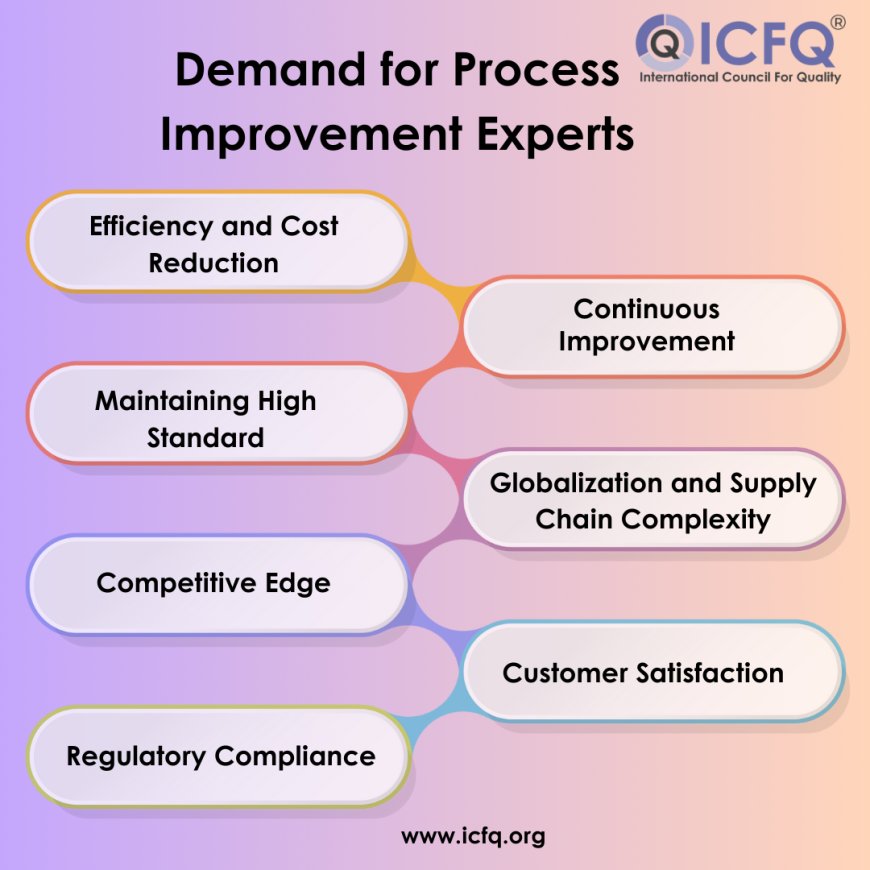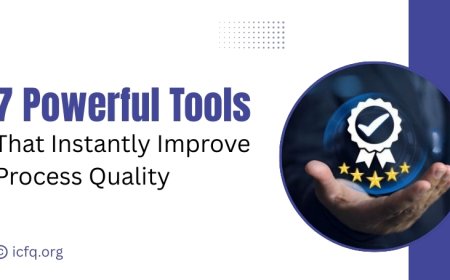Enhance Your Career with Quality Six Sigma
Enhance your career with Quality Six Sigma. Discover the benefits of Six Sigma certification and how it can boost your professional growth and job prospects.

Professional credentials are more important for your career because they prove you're great at your job. These credentials, like certificates or licenses, show bosses you have the skills they want. In many industries, you need them to get certain jobs or move up. They also show you're serious about learning and improving, which bosses appreciate. Having credentials makes you more trustworthy and reliable, helping you stand out in a busy job market where not everyone can prove their skills.
Having professional credentials is like having a key that unlocks new options in your work. It enables you to gain better jobs, become a leader, and take on more critical responsibilities at work. Employers value these certifications because they demonstrate your ability to perform your duties effectively. Furthermore, it makes you feel secure in your job because it makes you more appealing to employers, especially in always-evolving fields. Simply said, having professional qualifications is vital for progressing in your career since it demonstrates your expertise, makes you more trustworthy, and opens up new opportunities for success.
Need for Process Improvement & Quality Experts
The demand for process improvement and quality assurance professionals stems from the requirement to work efficiently, deliver quality, remain competitive, follow regulations, improve, handle complexity, and satisfy customers in many industries.
-
Efficiency and Cost Reduction: This is about making sure that companies are using their resources wisely. By streamlining processes, they can save time and money, which is essential for staying profitable.
-
Maintaining High Standards: When companies provide products or services, they want to make sure they're top-notch. Quality assurance ensures that everything meets or exceeds the standards set by the company and expected by customers.
-
Competitive Edge: In a crowded market, every company wants to stand out. By constantly improving processes, they can offer better products or services than their competitors, attracting more customers.
-
Regulatory Compliance: Every industry has rules and regulations that must be followed. Companies need experts who understand these regulations and can ensure that their processes meet all the necessary legal requirements.
-
Continuous Improvement: Companies can't afford to stay stagnant. They need to always be looking for ways to do things better, whether that's by cutting waste, improving efficiency, or enhancing product quality.
-
Globalization and Supply Chain Complexity: With businesses operating on a global scale, managing supply chains becomes increasingly complex. Experts in process improvement and quality assurance are needed to ensure that everything runs smoothly and consistently, regardless of where in the world it's happening.
-
Customer Satisfaction: Ultimately, it all comes down to the customer. Happy customers mean repeat business and positive word-of-mouth advertising. By focusing on process improvement and quality assurance, companies can ensure that their customers are always satisfied with what they're offering.

Why are Six Sigma certifications relevant in today's job market?
Six Sigma certifications are important in today's job market because they show that someone is good at improving processes and making sure things work smoothly. Companies like to hire people with these certifications as Six Sigma certifications remain relevant in today's job market due to several key reasons:
-
Process Improvement Skills: Six Sigma training equips individuals with valuable skills to identify inefficiencies, reduce waste, and streamline processes within organizations.
-
Cost Reduction: Companies are constantly seeking ways to cut costs and improve their bottom line. Six Sigma methodologies enable certified professionals to identify cost-saving opportunities and implement strategies to enhance operational efficiency.
-
Quality Assurance: In an increasingly competitive market, maintaining high-quality standards is essential for businesses to retain customers and stay ahead of competitors. Six Sigma methodologies emphasize a data-driven approach to quality improvement, ensuring consistent delivery of products or services that meet customer expectations.
-
Problem-solving Abilities: Six Sigma certification demonstrates an individual's proficiency in problem-solving techniques such as DMAIC (Define, Measure, Analyze, Improve, Control). Employers value these skills as they enable employees to effectively address challenges and drive continuous improvement initiatives.
-
Global Recognition: Six Sigma is widely recognized and implemented across industries globally. Holding Six Sigma certification enhances an individual's credibility and marketability, making them attractive candidates for employers seeking professionals with proven expertise in process optimization and quality management.
Six Sigma Credentials for Career Advancement
To advance your career with Six Sigma credentials, start by applying your skills in problem-solving and process improvement at your current job, showcasing tangible results. Look for leadership opportunities to lead Six Sigma projects or teams, demonstrating your expertise and ambition. Stay updated with continuous learning and networking within the Six Sigma community to expand your knowledge and opportunities. Document your achievements from successful projects to highlight your value to potential employers or for internal advancement opportunities. When seeking career growth, target roles or promotions that specifically require Six Sigma credentials, emphasizing your certification and relevant experience to stand out as a qualified candidate.
Value of Six Sigma Certification
The value of Six Sigma certification in career advancement is clear. It shows that you're good at improving processes and solving problems. With this certification, you prove that you can find ways to make things work better and save money for your company. Employers like this because it means you can help them run more smoothly and efficiently. Having a Six Sigma certification makes you more credible and attractive to employers, especially for jobs that focus on making processes better and keeping quality high. It also opens doors to leadership roles, as companies often look for certified individuals to lead improvement projects. In short, Six Sigma certification gives you a competitive edge in your career and helps you move up the ladder.
Six Sigma certification offers numerous benefits for career growth. It equips individuals with valuable skills in process improvement and problem-solving, enhancing their credibility and marketability to employers. Investing in Six Sigma training demonstrates a commitment to continuous learning and professional development, essential in today's job market. By obtaining Six Sigma certification, individuals can access better job opportunities, advancement into leadership roles, and increased earning potential. Emphasizing continuous learning through Six Sigma training ensures staying competitive and adaptable in an ever-evolving workplace landscape. Consider investing in Six Sigma for a brighter career future.




























